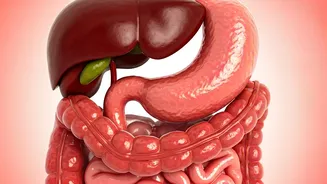Gassy Foods: Avoid Them
Certain foods are notorious for causing gas and bloating. Understanding which foods contribute to this discomfort is the first step toward finding relief.
High-fiber foods, though beneficial in moderation, can lead to bloating when consumed in large amounts. Common culprits include beans, lentils, broccoli, cabbage, and onions. Additionally, carbonated beverages and artificial sweeteners can introduce excess air into your digestive system, leading to bloating. By consciously limiting or avoiding these foods, you can significantly reduce the frequency and severity of bloating. Experimenting with portion sizes and food combinations also offers additional insights into how your body reacts. Keeping a food diary helps pinpoint the specific foods that trigger bloating, allowing for tailored adjustments to your diet. Consider that individual tolerances can vary widely, so personalizing your approach is crucial for achieving optimal results.
Fiber Intake Wisely
Fiber plays a crucial role in digestive health, but its impact on bloating depends on how much you consume. While increasing fiber intake is often recommended for overall well-being, introducing it too quickly can overload your digestive system, resulting in bloating and gas. When increasing fiber, do so gradually to allow your body to adapt. Drinking plenty of water is essential, as fiber absorbs water, which can prevent constipation and bloating. Excellent sources of fiber include fruits, vegetables, and whole grains. Be sure to spread your fiber intake throughout the day rather than consuming large amounts in a single meal. Paying attention to how your body responds to different types of fiber and fiber-rich foods is beneficial for a balanced approach. Furthermore, if you’re trying to increase fiber intake, consider starting with soluble fiber, as it's typically better tolerated than insoluble fiber.
Stop Excess Air Intake
Swallowing excess air is another common cause of bloating. This can happen when eating or drinking too quickly, talking while eating, or chewing gum. Carbonated drinks and using straws also increase the amount of air swallowed. Eating slowly and mindfully is essential to minimize air ingestion. Try to avoid engaging in activities that might cause you to swallow air while eating. Furthermore, be conscious of how you're drinking liquids; sipping slowly is preferable to gulping. If you're a gum chewer, consider reducing this habit, as it can be a significant contributor to air swallowing. In addition, properly fitting dentures and addressing any dental issues can also help reduce the amount of air ingested during eating and drinking. Adjusting these habits can make a considerable difference in reducing bloating.
Mindful Eating Practices
Practicing mindful eating can vastly improve your digestive health and minimize bloating. This involves paying close attention to your body's hunger and fullness cues. Avoid eating when distracted and focus instead on savoring each bite of your meal. Chew your food thoroughly, as this helps your digestive system break down food more efficiently. This also prevents swallowing large pieces of food that can contribute to bloating. When you eat mindfully, you’re less likely to overeat, a common cause of digestive distress. Create a relaxed and calm atmosphere around mealtimes, as stress can negatively affect digestion. Consider using breathing exercises before meals to promote relaxation. This approach allows you to appreciate your food and reduces the likelihood of overeating or swallowing excess air, providing a more pleasant and comfortable eating experience.
Get Moving Regularly
Regular physical activity is vital for promoting good digestive health and minimizing bloating. Exercise helps stimulate the muscles of your digestive system, facilitating the smooth movement of food through your gut. A short walk after meals can be particularly beneficial, aiding in digestion and reducing bloating. Consistent exercise also helps manage stress, which can trigger digestive problems. Aim for at least 30 minutes of moderate-intensity exercise most days of the week. Activities like walking, jogging, cycling, and swimming are all great options. Combining regular exercise with a balanced diet can significantly improve your digestive health. Remember to stay hydrated during exercise to support overall gut function and prevent constipation, which can worsen bloating. Regular movement supports better digestion.













